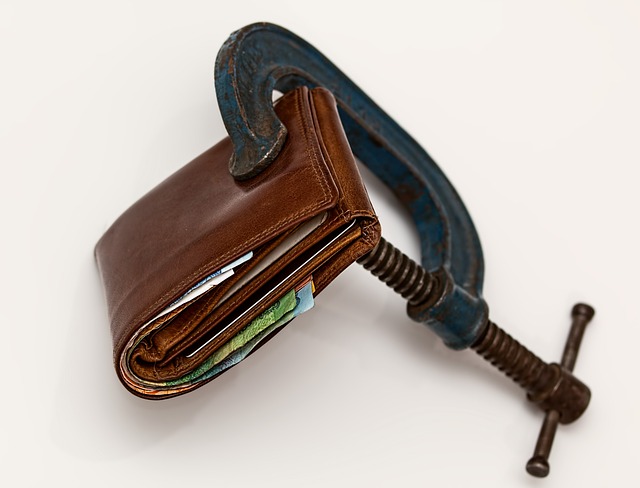Personal Loan Consolidation (PLC) helps homeowners manage debts more efficiently by converting multiple high-interest loans into a single, secured loan with potentially lower rates and extended terms. This strategy frees up cash flow, improves credit scores, and simplifies repayment. However, it carries risks like foreclosure in case of default and potential higher interest rates. Before applying, assess your financial health, property value, and budget to ensure the new loan fits within your income. Weigh PLC against alternatives like debt settlement or counseling if facing hardships. Always consult a financial advisor to make an informed decision.
“Considering a personal loan consolidation using your home as collateral? This comprehensive guide explores the pros and cons of securing your home for debt relief. From unlocking substantial savings with home equity loans to understanding the risks involved, this article equips homeowners with vital insights. We dissect the advantages, such as lower interest rates and unified payments, while highlighting potential drawbacks like increased borrowing costs and home foreclosure risks. By weighing these factors, you’ll make an informed decision regarding personal loan consolidation.”
- Understanding Personal Loan Consolidation: Unlocking the Potential of Your Home
- The Advantages of Securing Your Home for a Consolidation Loan
- Disadvantages and Risks to Consider Before Taking the Plunge
- Evaluating Your Financial Situation for Homeowner Consolidation Loans
- Alternative Solutions: Exploring Other Debt Relief Options
- Making an Informed Decision: Weighing the Pros and Cons
Understanding Personal Loan Consolidation: Unlocking the Potential of Your Home

Personal Loan Consolidation is a strategic financial move that involves using your home equity to repay multiple outstanding debts. By bundling these debts into a single loan secured by your property, homeowners can enjoy several benefits. This approach simplifies repayment management, as instead of making multiple monthly payments, you’ll have just one with potentially lower interest rates and extended terms.
It also provides the opportunity to free up cash flow, as the combined loan amount might be less than the total of your existing debts. This freed-up capital can be used for home improvements, debt repayment, or other financial goals. Moreover, consolidating personal loans can improve your credit score over time by reducing your overall debt burden and demonstrating responsible financial management.
The Advantages of Securing Your Home for a Consolidation Loan

Securing your home for a personal loan consolidation offers several advantages that make it an attractive option for many homeowners. One of the primary benefits is the potential to obtain a lower interest rate compared to traditional unsecured loans. By using your equity as collateral, lenders are more willing to offer competitive rates, saving you money in the long run. This is especially advantageous when consolidating multiple high-interest debts into one manageable payment.
Additionally, home-secured consolidation loans often come with longer repayment terms, providing relief from monthly cash flow constraints. The stability of fixed payments can help homeowners better manage their finances and potentially free up funds for other important expenses or savings goals. This approach can also simplify debt management by consolidating various debts into one loan, making it easier to stay organized and on track with repayment.
Disadvantages and Risks to Consider Before Taking the Plunge

Before deciding on a homeowner consolidation loan, it’s crucial to weigh the potential disadvantages and risks. One significant concern is the risk of defaulting on payments, which can lead to foreclosure if you fail to meet the loan obligations. These loans are secured against your home, meaning non-payment could result in the loss of your property.
Additionally, personal loan consolidation comes with interest rates that, while often competitive, can still be higher than other loan types, depending on your credit score and the current market. There’s also the risk of extending your repayment period, which could lead to paying more in interest over time. It’s essential to carefully consider these factors before “taking the plunge” into a consolidation loan.
Evaluating Your Financial Situation for Homeowner Consolidation Loans

Before considering a homeowner consolidation loan, it’s crucial to evaluate your current financial situation. This step is essential for determining if this option aligns with your monetary goals and overall health. Start by assessing your existing debts and their associated interest rates. A Personal Loan Consolidation can be beneficial if you have multiple high-interest loans, such as credit card balances or personal loans, that you want to streamline into a single, lower-interest mortgage. This approach simplifies repayment and potentially saves money over time.
Additionally, analyze your income, monthly expenses, and any upcoming financial commitments. Ensuring your loan payments won’t strain your budget is vital. Consider factors like property value appreciation (if applicable) as collateral for the consolidation loan, which can lead to better interest rates. Evaluate your credit score, too; a stronger one might entitle you to more favorable terms.
Alternative Solutions: Exploring Other Debt Relief Options

Before deciding on a Homeowner Consolidation Loan, it’s crucial to explore alternative debt relief options. Personal Loan Consolidation stands out as a viable choice for many homeowners looking to simplify their financial obligations. By bundling multiple debts into one fixed-rate loan, this approach can significantly reduce monthly payments and interest costs. This strategy offers the added benefit of potentially improving credit scores over time, making it easier to access future financing opportunities.
However, personal loan consolidation isn’t always the best fit for every situation. Other options like debt settlement or credit counseling agencies might provide more flexible repayment terms or help negotiate with creditors directly. These alternatives could be particularly beneficial if you’re facing financial hardships and need immediate relief rather than long-term debt restructuring. Assessing your unique circumstances and comparing various debt management strategies is essential before committing to any course of action.
Making an Informed Decision: Weighing the Pros and Cons

When considering a Homeowner Consolidation Loan, making an informed decision is paramount. This type of loan allows you to combine multiple debts into a single mortgage, often with a lower interest rate. The pros are clear: reduced monthly payments due to lower rates and simplified financial management by dealing with fewer loans. Additionally, the equity in your home can serve as collateral, potentially offering more favorable terms.
However, there are cons to weigh as well. If you default on this loan, you risk losing your home. Interest rates might not always be lower than those available separately for your debts, and closing costs associated with refinancing can be significant. It’s crucial to carefully evaluate your financial situation, consult with a financial advisor, and consider alternative solutions like debt management plans or negotiation with creditors before securing a Homeowner Consolidation Loan.
When considering a homeowner consolidation loan, understanding both the pros and cons is crucial. Securing your home can offer significant advantages like lower interest rates and improved repayment terms, but it’s essential to weigh these against potential risks such as increased debt-to-value ratios and foreclosure consequences. Evaluating your financial situation and exploring alternative solutions can help you make an informed decision. In the end, personal loan consolidation may be a beneficial strategy for managing debt, provided it aligns with your specific financial goals and risk tolerance.
